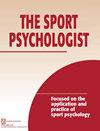Efficacy Beliefs Are Related to Task Cohesion: Communication Is a Mediator
IF 1.2
4区 心理学
Q3 HOSPITALITY, LEISURE, SPORT & TOURISM
引用次数: 4
Abstract
1 Efficacy beliefs and communication are key constructs which have been targeted to 2 develop task cohesion. This study’s purpose was to: (1) examine whether collective efficacy, 3 team-focused other-efficacy, and team-focused relation-inferred self-efficacy (RISE) are 4 predictive of task cohesion, and (2) evaluate the possibility that communication mediates 5 efficacy-task cohesion relationships. British university team-sport athletes ( n = 250) 6 completed questionnaires assessing efficacy beliefs, communication (i.e., positive conflict, 7 negative conflict, and acceptance communication), and task cohesion (i.e., attractions to 8 group; ATG-T, group integration; GI-T). Data were subjected to a multi-group path analysis 9 to test mediation hypotheses while also addressing potential differences across males and 10 females. Across all athletes, collective efficacy and team-focused other-efficacy significantly 11 predicted ATG-T and GI-T directly. Positive conflict and acceptance communication 12 significantly mediated relationships between efficacy (team-focused other-efficacy, collective 13 efficacy) and cohesion (ATG-T, GI-T). Findings suggest enhancing athletes’ collective 14 efficacy and team-focused efficacy beliefs will encourage communication factors affecting 15 task cohesion. 16 17效能信念与任务内聚的关系:沟通是中介
效能信念和沟通是培养任务凝聚力的关键结构。本研究的目的是:(1)检验集体效能、团队关注的他人效能和团队关注的关系推断自我效能(RISE)是否能预测任务内聚;(2)评估沟通在效能-任务内聚关系中的中介作用。英国大学团队运动运动员(n = 250)完成了6份问卷,评估了效能信念、沟通(即积极冲突、7个消极冲突和接受性沟通)和任务凝聚力(即对8个群体的吸引力);ATG-T,集成化;GI-T)。数据进行了多组路径分析,以检验中介假设,同时也解决了男性和女性之间的潜在差异。在所有运动员中,集体效能和团队关注的其他效能显著地直接预测ATG-T和GI-T。积极冲突和接受性沟通显著调节了效能(团队关注的他人效能、集体效能)和凝聚力(ATG-T、GI-T)之间的关系。研究结果表明,提高运动员的集体效能感和以团队为中心的效能感信念会促进影响任务凝聚力的沟通因素。16日17
本文章由计算机程序翻译,如有差异,请以英文原文为准。
求助全文
约1分钟内获得全文
求助全文
来源期刊

Sport Psychologist
医学-心理学
CiteScore
2.80
自引率
6.20%
发文量
18
审稿时长
>12 weeks
期刊介绍:
TSP is a scholarly refereed journal designed as a forum to stimulate thought and disseminate knowledge that focuses on the application and practice of sport psychology. A special emphasis of the journal is on the delivery of psychological services to practitioners such as athletes and coaches. TSP is international in scope and is receptive to diverse methodologies. TSP is published for sport psychology specialists who engage in research, teaching, and/or intervention in a variety of contexts including academic, public, and private settings. The journal is also intended for practitioners such as coaches who have training and interest in sport psychology.
 求助内容:
求助内容: 应助结果提醒方式:
应助结果提醒方式:


